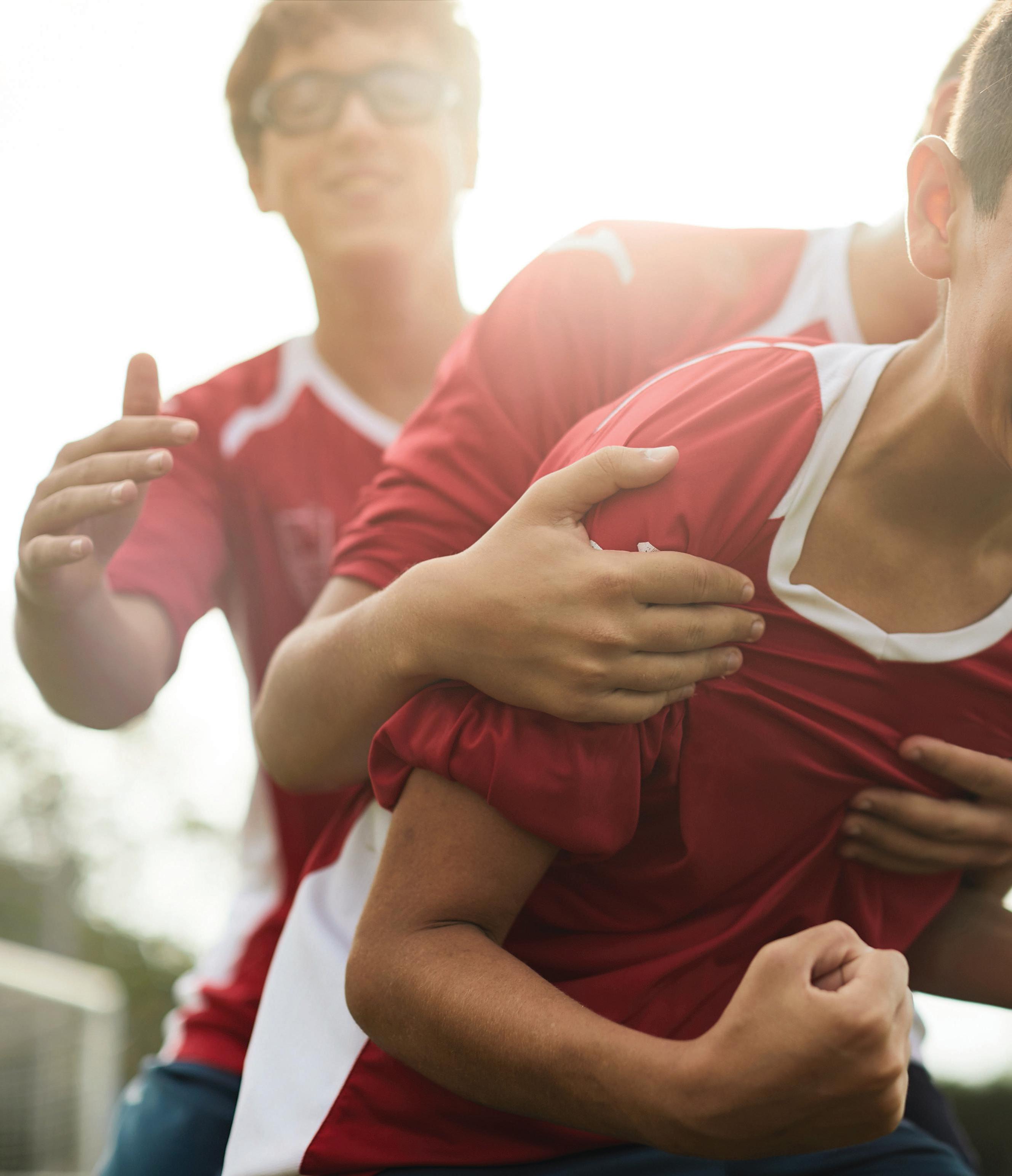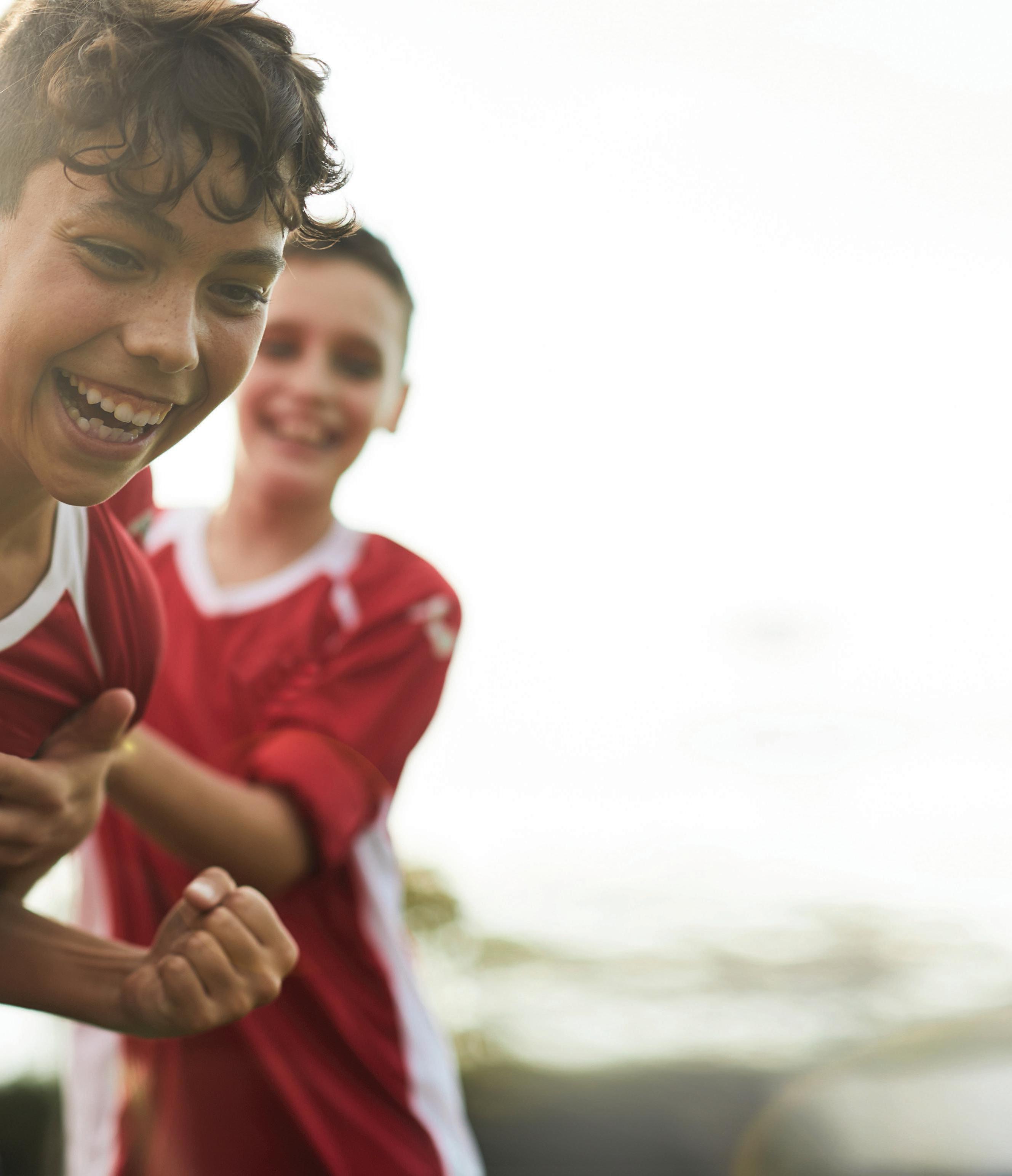
4 minute read
To Play Is To Win
TO PLAY IS TO WIN As a Teaneck pediatrician explains, sports can make kids stronger, fitter— and happier.
Today’s parents fondly recall their own playing days, when we dreamed of becoming the next Michael Jordan, Mia Hamm or Joe Montana. Though most of us didn’t win athletic fame, we were winners anyway— enjoying the developmental benefits of exercise, social contact, teamwork and disciplined effort. But now the things we won are in jeopardy for our kids. According to the Centers for Disease Control and Prevention (CDC), children ages 6 to 17 should get 60 minutes of moderate to vigorous physical activity each day. Those who exercise regularly reduce their risk of developing conditions such as heart disease, cancer, type 2 diabetes, high blood pressure and obesity. But despite the CDC’s advice, only about 24 percent of that population meets the recommended guideline. With recreation leagues, travel teams and school sports, Bergen County children have a wealth of opportunities to get involved in organized athletic activity. The COVID pandemic slowed participation in 2020, but as vaccination numbers increase and safety protocols are followed, doctors and coaches say playing is a go this fall. That’s especially important as kids “return to normal,” says Harry Banschick, M.D., chief of Pediatrics at Holy Name Medical Center in Teaneck.

DOES A BODY GOOD
Of course, sports are great for kids’ bodies. They enhance overall fitness, which has numerous benefits. “When you exercise, your metabolism is stimulated, your heart works and you build vital organs,” says
Dr. Banschick. “The heart works more efficiently when you exercise on a regular basis.” As the heart gets stronger, a child’s energy output during the day will increase—which can help balance caloric intake/outtake, build endurance and improve sleep. “Any movement activity,” the doctor adds,
“clears your mind and stimulates the body to produce hormones to make you feel better.” And while many young athletes find it hard to stick with a fitness plan on their own, being part of a team makes it just a little easier to stay on track. “You can be a runner, which is an individual activity, but you can run with friends in cross-country,” notes Dr. Banschick. “Tennis is the same: You’ll stay active but still play as a social activity.”
Playing sports doesn’t just keep you physically active, it keeps you socially active too—something that many children, especially younger ones, struggled to do during the pandemic. Being away from friends and teammates was detrimental for a lot of kids. “The lack of socialization is one of the biggest problems we see in adolescents and teens,” the doctor says. “We’ll have many pre-K and kindergarten students socializing with others for the first time this fall, and that can bring anxiety. Having them play sports and be a part of a group can ease them into social environments.” By joining a team, kids can make new friends and stave off loneliness—a major contributor to teen depression. According to the CDC, extreme depression can lead to suicide, one of the leading causes of death for youths ages 10 to 24.
MINDS IN ACTION
Sports can also do wonders for kids’ developing brains. Participating in a practice or game can command their concentration, providing a welcome break from schoolwork and other day-to-day stressors. “Playing a sport makes one learn to focus better,” says Dr. Banschick. The CDC adds that regular exercise helps keep thinking and judgment skills sharp as kids age. All that physical activity is good for their mood too. It increases the brain’s level of endorphins, so-called “feelgood” chemicals that serve as uppers. They also function as natural painkillers that keep young athletes feeling more comfortable.
Parents have a role to play other than cheerleader as they encourage their children to join a team. Pushing them to do their best is OK, but more important is knowing when enough is enough. “Be sure you can talk openly with your kid, and know when to back off,” Dr. Banschick advises. “Some of us live our lives through our children and don’t realize it.” Adults must also ensure their children are physically able to perform, especially with summer temperatures still in play. For instance, overweight kids who participate in sports to improve their health should be physically cleared for afternoon sessions in the heat. “These players are on football teams, but 2 p.m. practices under the sun are not a smart thing unless the kid is properly hydrated and conditioned,” he says. “Parents and coaches have to be careful how much water they’ll lose.” Dr. Banschick also recommends that young athletes avoid sports drinks loaded with sugar as well as energy drinks that contain large amounts of caffeine.
In the end, parents and children should always remember that youth sports are about having fun and meeting new friends. “Your kid may not be the greatest athlete,” Dr. Banschick says, “but the most important thing that is he or she will be with other kids, being active and hanging out together.”










